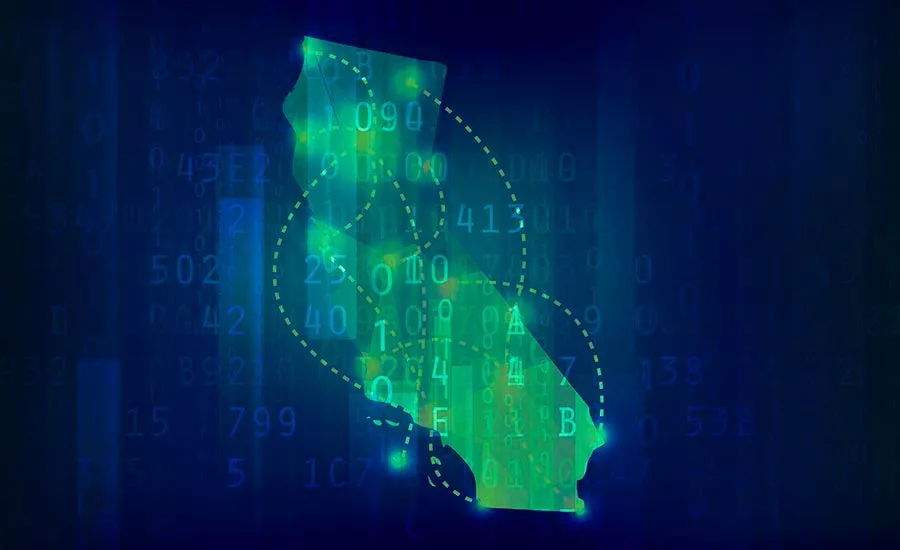CCPA enforcement deadline has arrived - are you prepared?

Yesterday (July 1, 2020) marked the official deadline to achieve compliance of the California Consumer Privacy Act (CCPA).
CCPA was signed into law on June 28, 2018, and went into effect on January 1, 2020. CCPA grants California consumers robust data privacy rights and control over their personal information, including the right to know, the right to delete, and the right to opt-out of the sale of personal information that businesses collect, as well as additional protections for minors.
On June 1, 2020, the Office of the California Attorney General submitted the final proposed regulations package under the California Consumer Privacy Act (CCPA) to the California Office of Administrative Law (OAL). According to California Attorney General Xavier Becerra, OAL has 30 working days, plus an additional 60 calendar days under Executive Order N-40-20 related to the COVID-19 pandemic, to review the package for procedural compliance with the Administrative Procedure Act. Once approved by the OAL, the final regulation text will be filed with the Secretary of State and become enforceable by law.
In addition, the regulation will likely to impact a broad swath of companies, including tech giants like Facebook and Google and retailers like Walmart and Amazon. The Attorney General may enforce CCPA violations after a 30-day notice and cure period seeking penalties of up to $2,500 per violation or up to $7,500 per intentional violation.
“Today we begin enforcement of the California Consumer Privacy Act (CCPA), a first-of-its-kind data privacy law in America,” said Attorney General Becerra. “We encourage every Californian to know their rights to internet privacy and every business to know its responsibilities. The website of every business covered by the law must now post a link on its homepage that says ‘Do Not Sell My Personal Information’. Click on it. Remember, it’s your data. You now get to control how it’s used or sold.”
Robert Cruz, Vice President, Information Governance Solutions at Smarsh, notes that the timing of CCPA has been odd with the bill taking effect on January 1, enforcement beginning on July 1, and with additional changes likely with the passage of the CRPA initiative in November. "All of which is happening prior to the final verbiage of the bill being approved (it was submitted for approval in June), and while we are in the midst of a pandemic. Many of the areas that remain in need of clarification pertain to definitions around the sale of personal data for companies that engage primarily in that business," Cruz says.
Many financial services firms have already taken the preliminary steps to prepare for CCPA, borrowing from lessons learned by firms who went through similar steps in advance of GDPR, Cruz adds. "They include: 1) data mapping to understand the potential locations of personal data within their IT infrastructure and applications, 2) adjusting retention policies to ensure that they are congruent with CCPA, and 3) building processes and/or implementing technologies that will allow them to retrieve content from those locations in order to fulfill a Right of Access request within the required time period. Since financial services firms have existing regulatory-driven retention requirements for firm-related communications, they are a step ahead of other industries in having established archiving investments where these communications can be proactively and centrally managed, which will help in addressing potential inquiries under CCPA."
"As noted by many, one of the big uncertainties that will continue to surround this data privacy topic is that CCPA (and the likely CRPA) is that it is only one of what will multiple state privacy initiatives that firms will need to adhere to," says Cruz. "This, along with a variety of international data privacy mandates faced by multi-nationals, is causing businesses to place additional pressure on the US Federal Government to move on a national data privacy law that can help to reconcile and harmonize requirements across states.”
Emma Bickerstaffe, Senior Research Analyst at the Information Security Forum, says,“The final proposed CCPA regulations have not substantively changed since they were previously modified as per the second draft issued in March for public comment. Consequently, businesses have had a few months to familiarize themselves with the practical guidance that these implementing regulations provide in terms of complying with the CCPA.
"The proposed regulations are now subject to review for procedural compliance by the California Office of Administrative Law," notes Bickerstaffe. "Once in effect, a violation of the regulations will constitute a violation of the CCPA. Although they have yet to be adopted as law, they reflect how the California Attorney-General will interpret the CCPA and what practical measures should be in place to achieve compliance. Businesses would therefore be wise to take a proactive stance and map their practices to the requirements set out in the proposed regulations."
"Of note, however, is that even once the regulations are approved and come into effect, some ambiguity will still remain regarding two key exemptions that exclude the application of the CCPA to certain employee data and certain information collected in the context of business to business transactions. These exemptions expire on January 1, 2021, unless the Attorney General’s Office makes further amendments to the CCPA. If no legislative action is taken, organizations will need to revisit the policies and procedures that currently apply to these particular types of information," adds Bickerstaffe.
Isabelle Dumont, Vice President of Market Engagement at Cowbell Cyber, notes that many software application vendors have upgraded their application to enable easier handling of CCPA.
"This can provide businesses with a rapid path to compliance," says Dumont. "The same applies to cyber insurance protection: businesses should consider upgrading to insurance programs that already include coverage support with regards to CCPA. This is more often found in standalone cyber insurance programs. Finally, CCPA compliance demands one of the most granular levels of control over consumer data and is a good foundation for future regulations considered in other states.”
Looking for a reprint of this article?
From high-res PDFs to custom plaques, order your copy today!







